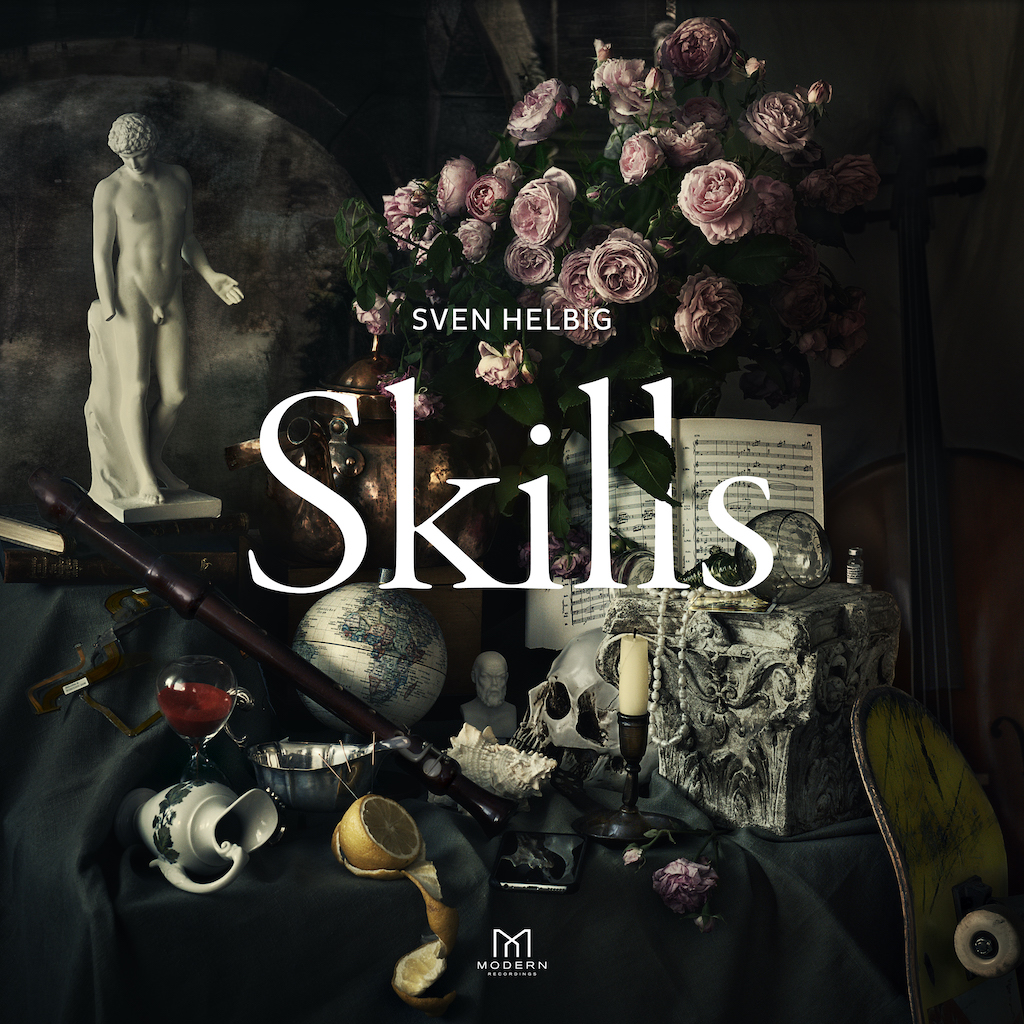Five Questions with Sven Helbig

What is the first thing that comes to your mind when you think of programmatic music? Symphonie Fantastique? Harlem Air Shaft? Tales from Topographic Oceans? Sven Helbig’s Skills, which will be released in February 2022 by BMG’s Modern Recordings imprint, is very much a part of this lineage. Over ten tracks, Helbig depicts the agony and ecstasy of learning a new skill while witnessing the disappearance of older ones. It’s an ambitious concept, and Helbig’s execution does it justice – as this interview shows.

Shwetant Kumar: You write music in the concert tradition while working with the likes of Rammstein, the Pet Shop Boys, and Snoop Dogg. Skills similarly juxtaposes French horns and celli with children’s toys and drum loops. Do you recognize any labels or boundaries in music?
Sven Helbig: I grew up in a small city, where I learnt about music through the radio. No specific genre has been especially close to me. I never experienced the different biotopes of music, their specific audiences, or specific concert situations. I always listened to all different stations and discovered them in their pure form as music in itself. I am sure this will also be the future of music, where it will be hard to find musical labels and names for genres anymore since everything is [being combined] all the time. The Internet is fuelling this process and driving it faster and faster.
SK: The use of brass instruments – particularly trumpets, which you do not use in Skills – for heroism, and of solo or chamber strings for vulnerability, are common musical tropes. Do these instruments innately evoke such qualities to you, or are such connotations learned the way skills are?
SH: I wanted the French horns because I am celebrating [both] the crafts and humans who master the crafts. It is a kind of hymn [to] our ability to invent, create and master new skills in order to survive. The French horns deliver this hymnic character better than any other instrument. The strings can add melancholic notes. I need this aspect in the piece since humans are not only inventing new skills, but are also facing the disappearance of handicrafts.
SK: As a composer, how did you go about musically describing each of the ten stages of the process?
SH: I went through the stages myself as a musician and know how they feel. The musical reflection of these states of mind came easily, just by imagining them. Of course, it is a personal perspective of it, but I tried to find a way where the listener can feel it too without being an artist or craftsman. One might find that you go through these stages as well in the development of friendships and relationships.
SK: You come from a family of craftsmen, but your fascination with the “almost ideal shapes formed by humans striving for perfection” could also describe works of art. What is the relationship between craft and art to you?
SH: This is an endless discussion [with] my friends, colleagues and family. Every time I look for the line where craft ends and art begins, there is an argument against it. In the German tradition of looking at art, we would not consider a painter at a porcelain manufacture an artist. But why? Every painter there has a unique style and gives every rose a personal interpretation. If they are not seen as artists, why is a conductor or a concert pianist an artist? They are just reproducing and giving a personal tone to the music. It is clear that a blacksmith, who makes horseshoes, isn’t an artist. But already the blacksmiths of knives in Japan and the calligraphs see themselves as artists. I would say that crafts have been invented by humans to survive, and grew into arts by becoming a reflection of life or spirituality.
SK: With programmatic music of this kind, what matters more to you: the concept or the outcome? Can one appreciate Skills without knowing what it is about?
SH: For me, it is essential to find a reason for the work. I am working with layers of meaning. You can research and find many details hidden in the whole album, like themes that are coming back all the time, or a hidden quote from Clara Schumann’s last Romance, [which] she wrote when Robert Schumann died in 1856, in “Despair”. But it is not necessary to know that background. I want to compose music that can live outside its context. This is how I experienced music in my early days. One can be moved by the St Matthew Passion without knowing anything about Christianity.






